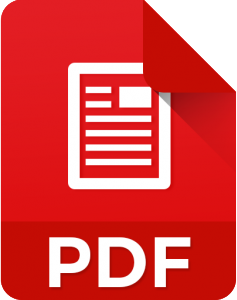Soy Lecithin Liposome as Potential Platform for Intravenous Delivery of Quercetin in Cancer Treatment
Diem-Huong Nguyen Tran 1, Ngoc Thuy Trang Le 1,2, Hong Thao Truong 3, Van Du Cao 3, Cuu Khoa Nguyen 1,2, Dai Hai Nguyen 1,2, Minh Thanh Vu 4*
2 Graduate University of Science and Technology, Vietnam Academy of Science and Technology, Ha Noi 100000, Vietnam
3 Faculty of Pharmacy, Lac Hong University, Buu Long Ward, Bien Hoa City, Dong Nai Province 810000, Vietnam
4 Institute of Chemistry and Materials, 17 Hoang Sam, Cau Giay, Ha Noi 100000, Vietnam
Naturally occurring compounds having anticancer properties are considered as attractive candidates for the treatment of cancer. Quercetin (QR; 3,3′,4′,5,7‐pentahydroxylflavone), one of the most important and abundant flavonoid in the human diet, recently gained much attention for its direct proapoptotic effect on various types of tumors and little to no toxicity to normal cells, which were well-documented in numerous in vitro and in vivo studies. In spite of the common presence in many edible fruits and vegetables, QR has poor oral absorption, resulting in very low bioavailability. Besides, the poor aqueous solubility, rapid body clearance, and instability in physiological environment also hinder the intravenous administration of QR. In this study, liposome formulated from eco-friendly soy lecithin (SLP) was developed and exploited for QR encapsulation, creating an aqueous intravenous delivery platform to overcome QR’s limitations. QR-SLP was prepared by thin film hydration method, followed by the investigation into the influence of hydration media (deionized water, PBS pH 5.7, and PBS pH 7.4) on QR-SLP’s size, polydispersity index (PDI), zeta potential, and drug encapsulation capacity. Transmission electron microscopy (TEM), dynamic light scattering (DLS), zeta potential measurement, differential scanning calorimetry (DSC), and UV-Vis spectrophotometer method were used for the characterizations. Results showed that hydration media had a strong influence on the size, PDI, and encapsulation capacity of the formulations, in which QR-SLPs hydrated with PBS pH 7.4 possess the smallest size (93.7 ± 4.9 nm) with low polydispersity and the highest drug loading efficacy (~95.18% for loading efficiency (LE) and ~8.65% for loading capacity (LC)) whereas those hydrated with PBS pH 5.7 have the largest size (303.7 ± 3.5 nm) with high PDI value and the lowest loading efficacy (~87.33% for LE and ~7.99% for LC). Moreover, all synthesized formulations were spherical in shape and had negative surface charges from -40 to -50 mV. QR was slowly released from QR-SLPs up to 24 h, showing a controlled and long-lasting release. Taken together, all of the obtained results demonstrated that QR-SLP hydrated with PBS pH 7.4 could serve as a potential platform for intravenous QR delivery, thus improving the applicability of QR in cancer treatment.
Keywords: Quercetin, Soy Lecithin, Liposome, Drug Delivery System, Cancer Treatment
Full Text
e-Presentation
|
|
|
|






